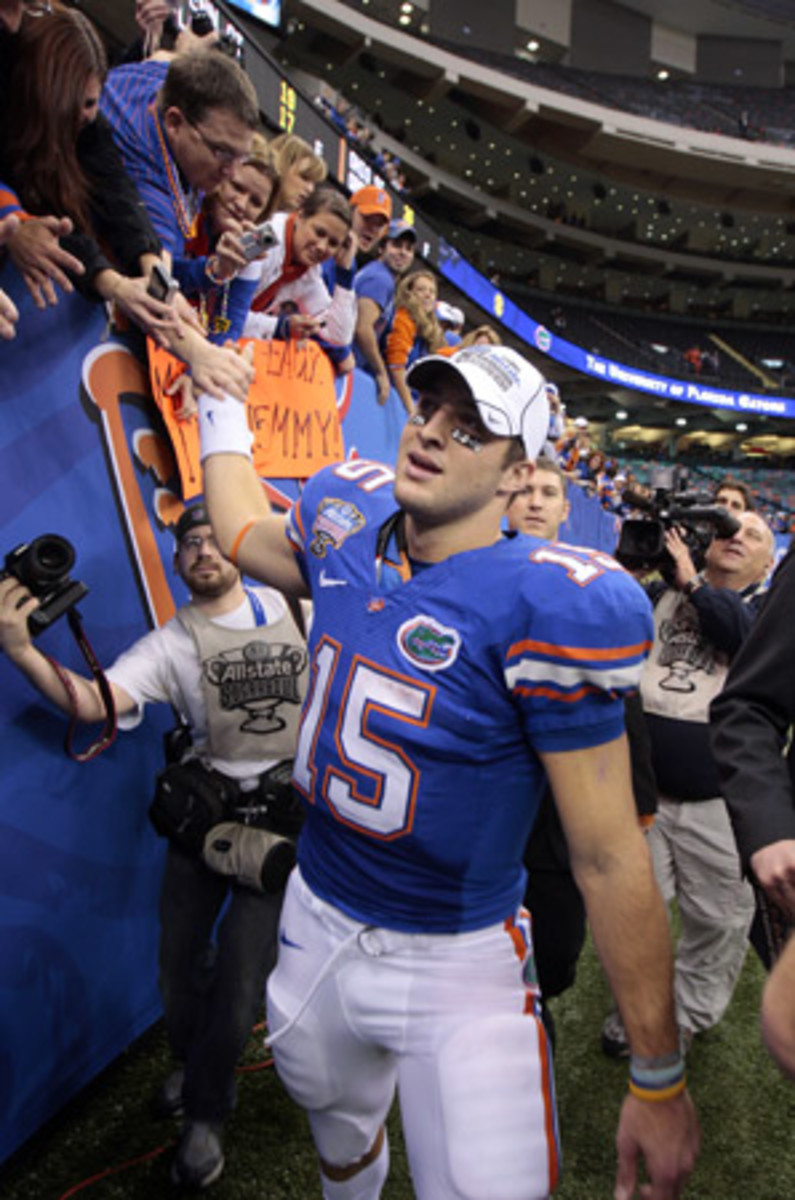Change is long overdue: College football players should be paid


I will watch Louisville play games in Papa John's Stadium and listen to coaches who make $3 million a year talk about "the chance to work with young people." I will listen to Nebraska officials talk about "fit" when they bolt for a wealthier neighborhood. I will watch the Pac-10 angle for a new TV deal by sending its coaches on an East Coast media tour, and I'll watch Texas horde as much of the BIg 12's cash for itself as possible.
But please, please, please do NOT tell me that college football is an amateur enterprise. That, I won't stomach.
The great irony of college football is that it is so steeped in Americana, yet is totally un-American. The revenues go up, up, up. The players work harder every year. And in the end, they are ineligible for a raise.
It is time for that to change. It's way past time, actually. In 2010, I don't know how anyone can argue that college football players don't deserve to get paid. We just went through the most turbulent offseason in college football history, and it was all -- all -- about money. Nebraska left the Big 12 for the Big Ten Network because of money. (What, you mean there is an actual conference behind that network? I had no idea.) Texas stayed in the Big 12 because of money. The Pac-10 expanded, the WAC and Mountain West squabbled, and USC got sentenced to at least two years in NCAA jail, all because of money.
Hey, I like money. I'm not going to get all anti-money on you, I promise. But how come schools get to do whatever they want for money, and coaches get to make as much as they can, and players are stuck in 1932? Isn't there anybody in this great nation who can get these guys in a union?
I'll give the schools this much: They aren't even faking it anymore. It's every chancellor for himself out there. Everything is for sale: conference affiliations, rivalries, game times, luxury suites, buildings -- you name it. Michigan and Ohio State trumpeted the greatest tradition in sports for decades, and what does that tradition mean to anybody now? It means if they distort it, they can squeeze more money out of some television network.
The schools are within their rights to make as much money as they can. My objection is to what they do with the money. Schools are essentially taking money from football and basketball players so they can give out scholarships to volleyball players and swimmers -- and pay millions of dollars to coaches.
Why do schools get to make that decision? Tim Tebow brought hundreds of thousands of dollars to the University of Florida. How come all he got was a scholarship?
A few years ago, I discussed this with the NCAA's president at the time, MylesBrand, and it was one of the most circular conversations I've ever had in my life. The defense of collegiate athletics as an amateur enterprise has turned into a "Who's on first?" routine.
"They can't be paid."
"Why?"
"Because they're amateurs."
"What makes them amateurs?"
"Well, they can't be paid."
"Why not?"
"Because they're amateurs."
Who decided they are amateurs?
"We did."
"Why?"
"Because we don't pay them."
And so what are we left with? This: Reggie Bush takes a boatload of cash while he is in college, and he gets excommunicated. I have no problem with that -- Bush broke the rules, and USC deserved what it got. But it's time to change the rules.
Brand said that football and men's basketball pay for other sports, just like the business school often subsidizes the philosophy department. Legal experts have told me that argument is utter nonsense -- it's no excuse for artificially holding down the wages of college athletes.
The NCAA only has two legal defenses for its amateurism rule:
1. The fact that these guys are amateurs is essential to the appeal of the sport. In other words, if college athletes got paid, people wouldn't want to watch them anymore.
But the Olympics have only gotten bigger since they started allowing professionals to compete. And call me crazy, but I don't think Alabama drew 90,000 people to its spring game because Tuscaloosa is buzzing with excitement over how many psychology majors are on the team. So I don't see how this argument holds up.
2. The amateurism rule essentially acts as a salary cap, allowing smaller schools to compete.
There is something to this -- nobody wants to see Florida and Texas and Ohio State and USC buy their way to BCS games every year. (Hold your USC jokes, please.)
But there has to be middle ground. There has to be a way to pay the players for their work, beyond their academic scholarships. Even if that means that every player gets paid the same amount, it would be a start.
These colleges are acting like big businesses. Well, big businesses pay their talent. College sports have been operating in an absurd structure for so long that we've come to think it makes sense. But it doesn't. And it's past time that somebody did something about it.
